ISP vs Residential Proxies: Which is Right for You?
Explore the intricacies of the digital world through a thorough analysis of “ISP vs Residential Proxies”. This comprehensive examination provides insights into how these two proxy types navigate online restrictions and access data, offering a clear understanding of their distinctive functions and applications in today's interconnected environment.
What Are ISP Proxies?
ISP proxies are a type of proxy server that use IP addresses associated with internet service providers (ISPs). They are akin to residential proxies but differ in that they are hosted on servers located in data centers. ISP proxies can handle fewer concurrent requests than residential proxies but excel at dealing with websites that have relatively simple blocking mechanisms and site architectures. They are known for their speed, stability, and constant availability, making them well-suited for data-intensive tasks.
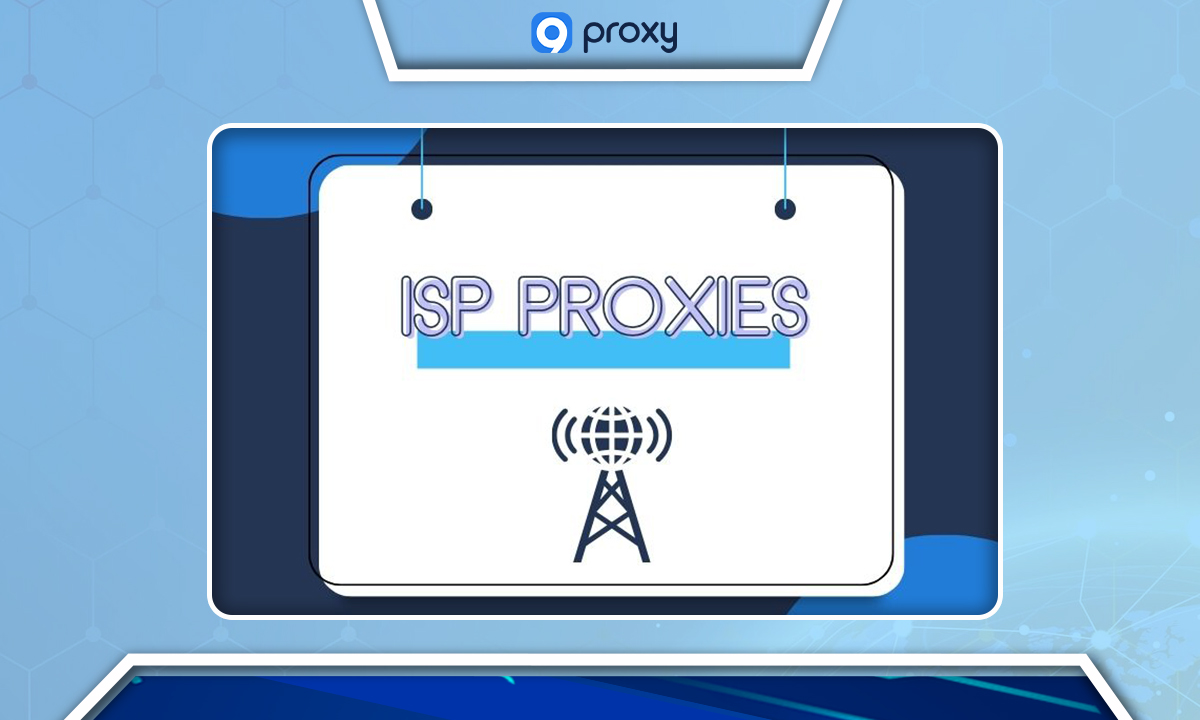
ISP proxies are favored among proxy users for their ability to combine the best aspects of residential, datacenter, and dedicated proxies. They find widespread use in web scraping, ad verification, and bypassing geo-restrictions and anti-scraping measures.
Advantages and Disadvantages of Using ISP Proxies
If you're considering using ISP proxies as your proxy server, it's crucial to understand both their benefits and drawbacks. Here, we break down the advantages and disadvantages of ISP proxies to help you make an informed decision.
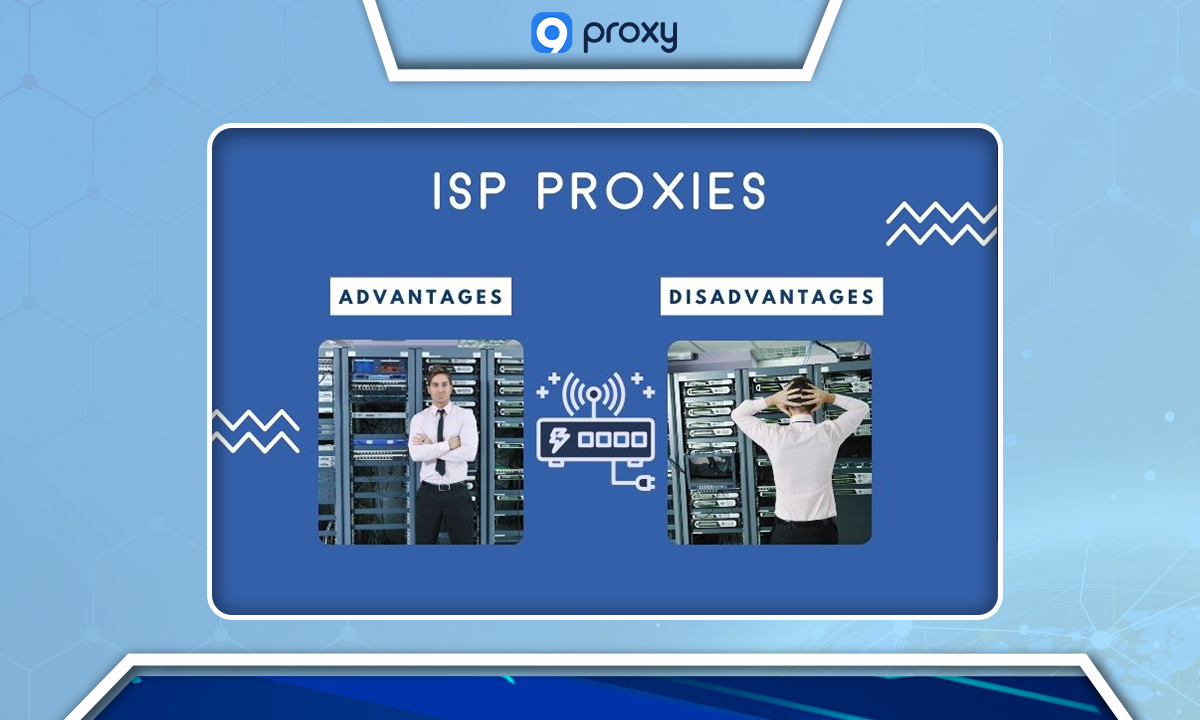
Advantages
Lower Detection Risk: ISP proxy IPs are supplied by Internet Service Providers, and they closely resemble residential IPs. This similarity makes ISP proxies an excellent choice for tasks like web scraping and managing social media accounts, where avoiding detection is essential.
High Speed and Stability: Since ISP IPs are hosted on servers in data centers, they enjoy high-speed, stable connections to internet services. This makes ISP proxies perfect for activities that demand rapid data transmission, such as streaming services and online gaming.
Long-Lasting Sessions: ISP proxies are static, meaning they maintain the same IP address for an extended period. This consistency is ideal for tasks requiring a reliable and continuous connection, like downloading or uploading large files.
Improved Privacy and Security: By masking your actual IP address, ISP proxies enhance your online privacy and security. They help protect your identity and data from potential threats.
Disadvantages
Limited Location Coverage: The availability of ISP proxy networks can be limited in certain regions, depending on your proxy provider. Various factors, such as regional demand and the willingness of ISPs to participate, influence this coverage. As a result, you may find limited options in specific geographic areas.
Low Subnet Diversity: ISP proxies may have limited subnet diversity and collaborate with smaller internet service providers. This can make them more susceptible to blacklisting if not refreshed regularly. It's essential to monitor and maintain these proxies to ensure their reliability.
Small ISPs: Many ISP proxy IPs end up registered with smaller, regional companies rather than major commercial providers. Unfortunately, IP databases often categorize them as datacenter IPs, which can negate the primary benefit of using ISP proxies—resembling residential IPs.
What Are Residential Proxies?
Residential proxies are a distinct type of IP address associated with actual homes and specific Internet Service Providers (ISPs). They form a sprawling network of authentic IP addresses provided by ISPs. Residential proxy networks enable users to utilize these IP addresses, enhancing their online protection. These IP addresses are typically tied to physical locations, ranging from small local areas to global reach.
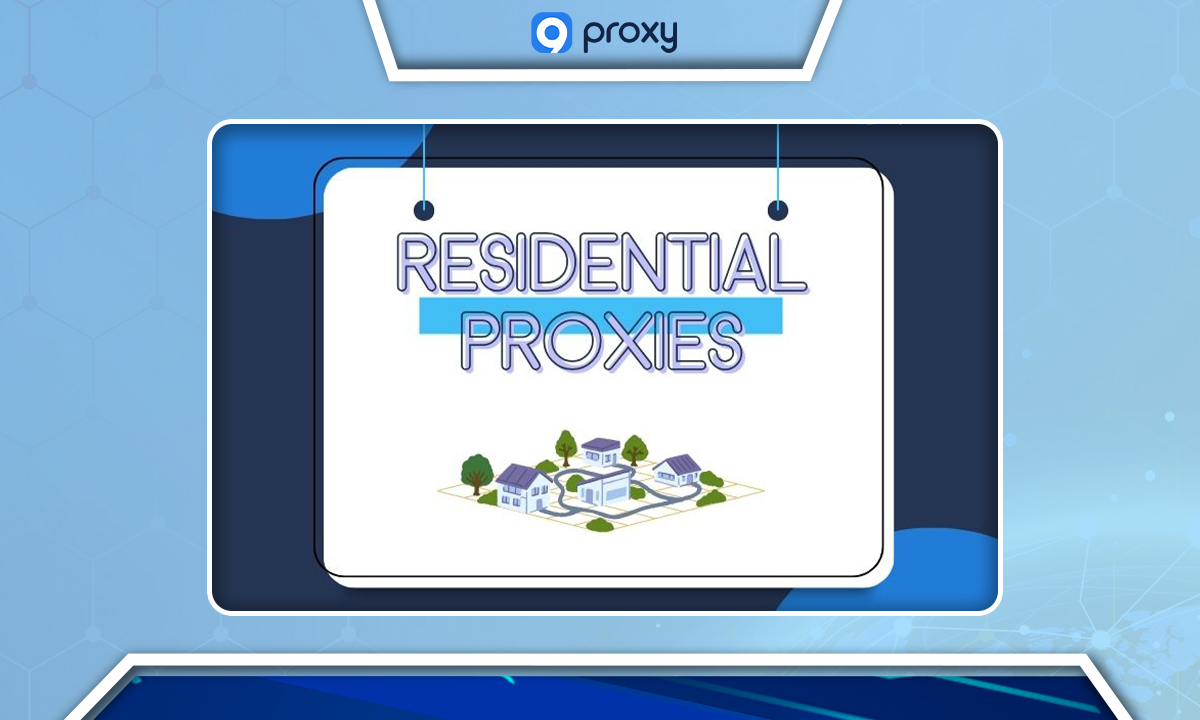
Residential proxies operate by substituting the user's real IP address with a different one, creating the illusion of being in a specific country or city, regardless of their true location. Their use provides heightened anonymity and stealth compared to datacenter proxies, as they source their IP addresses from real ISP customers. Residential proxies are legal and find application in business for competitor analysis, market research, and brand reputation management.
Advantages and Disadvantages of Using Residential Proxies
When considering using residential proxies, it's important to weigh their advantages and disadvantages against other proxy types. Here, we'll outline the key points to help you make an informed decision.
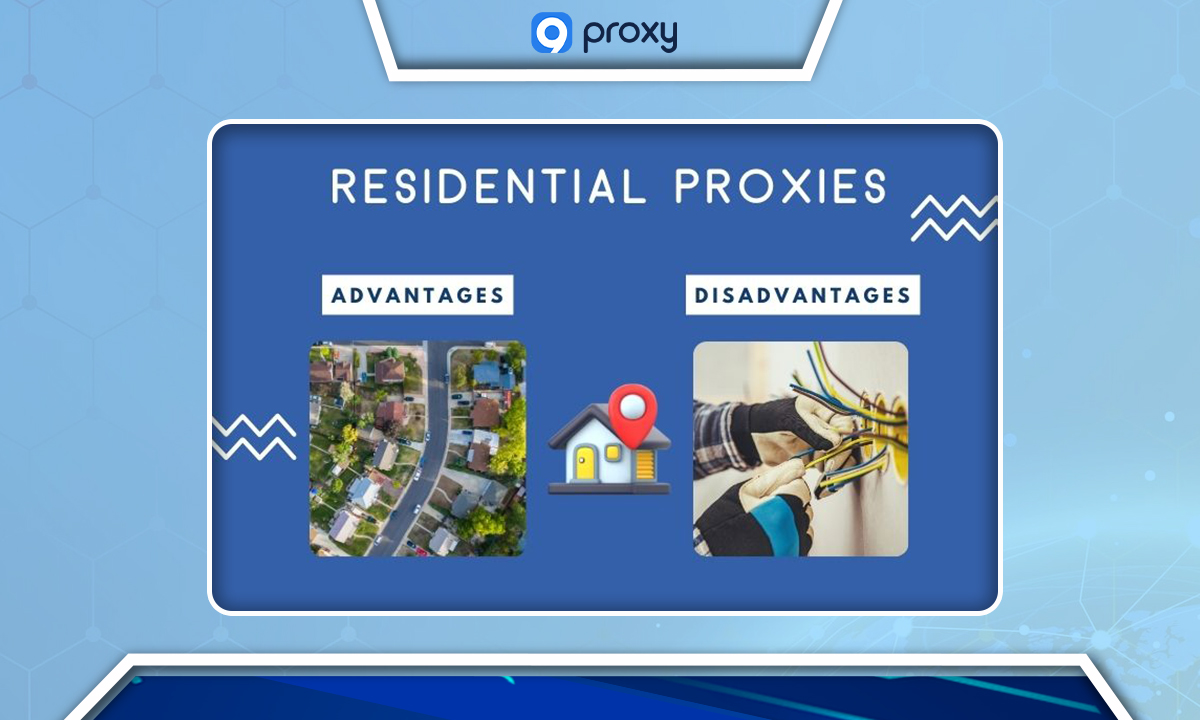
Advantages
Diverse IP Addresses: Residential proxy services typically operate vast pools of IP addresses, larger than those of ISP proxies. These addresses are distributed across various geographic locations, reducing the likelihood of using the same IP address repeatedly. With each request to a target website, you can use a different residential IP address.
Abundance of IP Options: Residential proxy providers manage thousands, and in some cases, millions of distinct IP addresses. This variety ensures that you're unlikely to encounter the same IP address multiple times, enhancing your online presence and versatility.
Reduced Risk of IP Blocking and Restrictions: Residential proxies allocate their unique IP addresses to users, minimizing the chances of being blocked or restricted by websites. This independence from shared IP pools can be advantageous for various online activities.
Disadvantages
Unstable Connections: Residential proxies route client requests through actual devices, which can result in slower data retrieval compared to datacenter proxies. While they offer high anonymity, this may come at the cost of slightly slower internet speeds.
Only Shared IPs: Residential proxy providers grant all customers access to the same pool of proxies. As a result, you'll be sharing these IPs with other users. While this can offer diversity, it also means that the same IP address may be used by multiple individuals simultaneously.
The Differences Between ISP and Residential Proxies
When it comes to proxies, ISP vs residential proxies offer distinct features and advantages. To help you make an informed choice, let's explore the key differences between these two types of proxies:
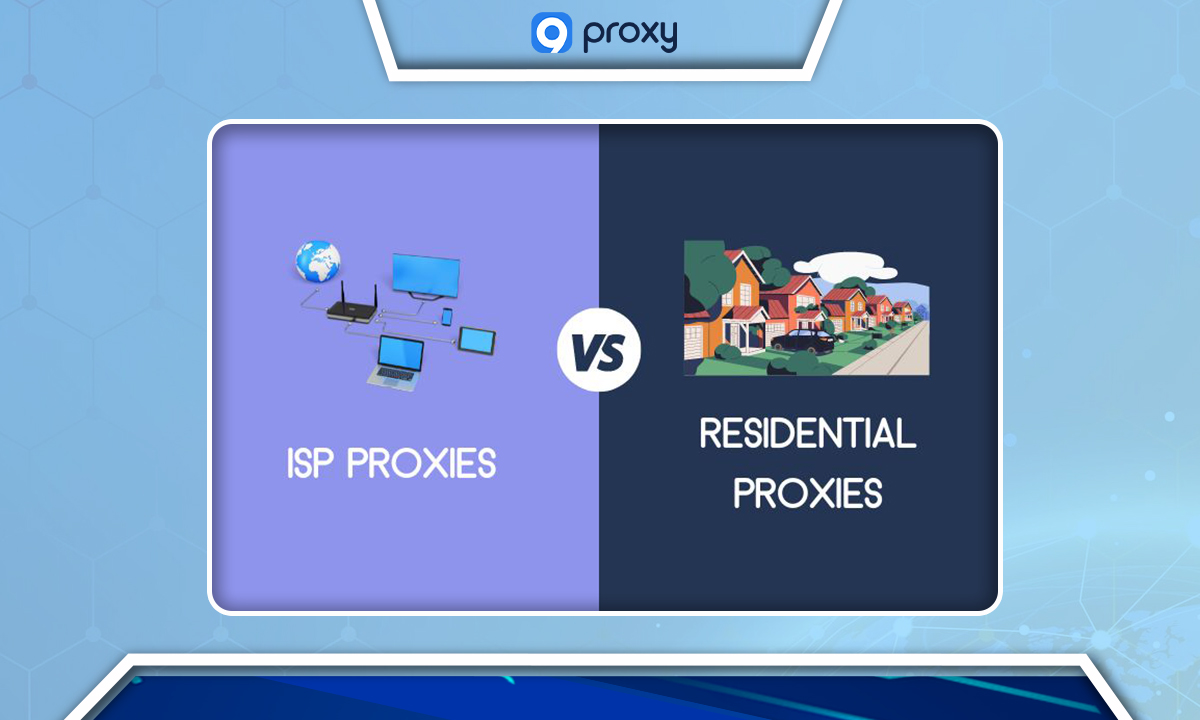
ISP Proxies
- Source: ISP proxies are a hybrid type, assigned by Internet Service Providers (ISPs) but hosted in data centers. They combine elements of both residential and datacenter proxies.
- Anonymity: ISP proxies provide a level of anonymity similar to residential proxies. However, they can be more easily identified as proxies compared to purely residential IPs.
- Reliability: These proxies are less likely to be blocked by websites compared to datacenter proxies. However, they may not be as reliable as residential proxies.
- Cost: Generally, ISP proxies fall between residential and datacenter proxies in terms of cost. They are more affordable than residential proxies but pricier than datacenter alternatives.
- Speed: ISP proxies tend to be faster and more stable than residential proxies because they are hosted on data center infrastructure.
- Use Cases: ISP proxies are suitable for tasks that demand both speed and a certain level of legitimacy. Examples include web scraping, SEO research, and social media management.
Residential Proxies
- Source: Residential proxies are IP addresses provided by Internet Service Providers (ISPs) to homeowners. These IPs are associated with real residential addresses.
- Anonymity: Residential proxies offer high levels of anonymity since they represent regular internet users, making them challenging to distinguish from genuine users.
- Reliability: Residential proxies are less likely to be blacklisted or blocked by websites because they appear as genuine user connections.
- Cost: Generally, residential proxies are more expensive due to their legitimacy and lower risk of detection.
- Speed: These proxies can be slower and less stable compared to ISP proxies since they rely on the real user's internet connection.
- Use Cases: Residential proxies are ideal for data scraping, ad verification, and accessing geo-restricted content while minimizing the risk of being blocked.
FAQ
Can ISP proxies be easily detected compared to residential proxies?
ISP proxies are less likely to be detected than datacenter proxies but are more identifiable than purely residential proxies.
How does the IP address availability compare between ISP and residential proxies?
Residential proxies usually provide a larger pool of IP addresses, reducing the risk of being flagged or blacklisted. ISP proxies also offer diverse IPs, but the range might be slightly more limited compared to residential proxies.
Can I switch between ISP and residential proxies easily with most providers?
This depends on the provider, but many proxy services offer the flexibility to switch between different types of proxies, including ISP and residential proxies.
Conclusion
In the debate of "ISP vs Residential Proxies," the choice ultimately depends on your specific needs. ISP proxies offer speed and versatility but are easier to detect. On the other hand, residential proxies excel in anonymity and reliability.
To explore more insightful topics and stay informed, check out our other blogs at 9Proxy. We're here to help you navigate the world of proxies and make informed decisions for your online activities.
Get Newsletters About Everything Proxy-Related